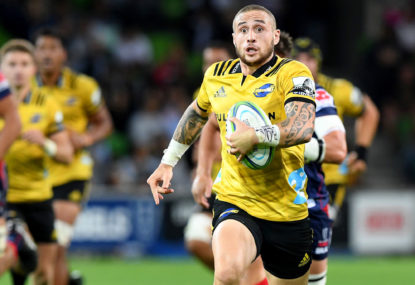Late in 2017 rugby analyst website ‘Rugby Vision’ released its ranking of 58 major global professional teams. The Hurricanes topped the list (just ahead of the Crusaders), with the Rebels ranked 56th, ahead only of two Russian clubs most local fans will have never heard of, Enesei and Krasny Yar.
With that in mind, the Hurricanes’ 50-19 win in Melbourne merely franked the form guide, and it should be no surprise that the tally of consecutive wins by New Zealand franchises over Australian franchises now stands at 33.
The trans-Tasman dominance has been clear and obvious, also evident in the Bledisloe Cup, Womens XVs, Under 20 and Schools arenas, so much so that the enormity of the number has begun to take on Black Caviar and Winx-like proportions.
Only in Women’s Sevens is the situation reversed, although the sides play so infrequently there is little opportunity for the Pearls’ magic to rub off onto the rest of Australian rugby.
Midway through last season it wouldn’t have mattered, but Hurricanes coach Chris Boyd effectively confirmed in a chat after Friday’s match that the sequence has taken on a life of its own, noting how his side is desperate not to become the first New Zealand side to blow the winning streak. And you can bet your last dollar that all four other New Zealand coaches think the same.
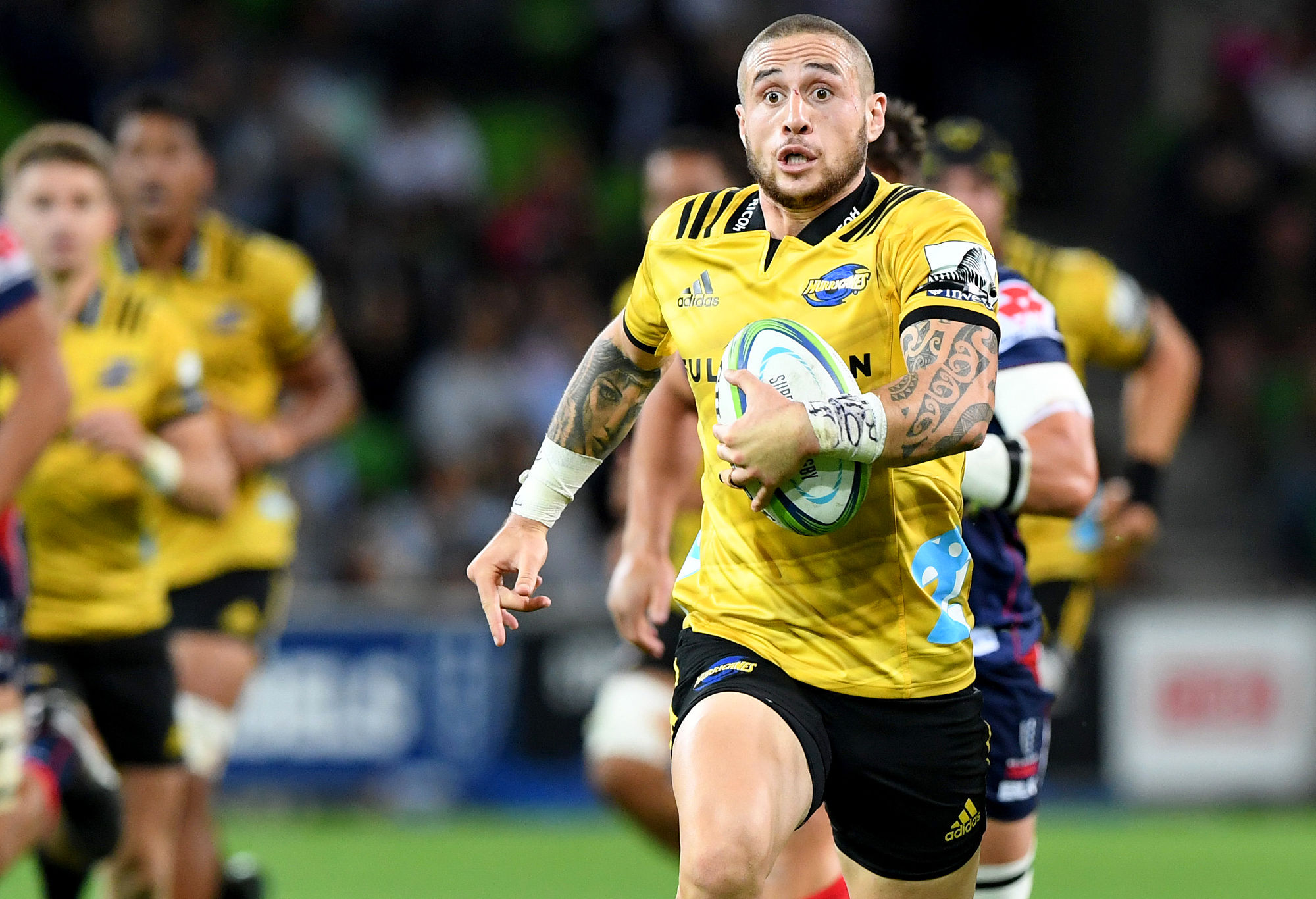
(AAP Image/Joe Castro)
As if to offer a small ray of hope, Boyd doesn’t expect the run to continue, and that an Australian franchise win will come soon. Just don’t expect it to be at the expense of his immensely talented team.
Whatever improvements are being made in Australia – and it would only be churlish to suggest there hasn’t been progress at at least three of the franchises – the New Zealanders aren’t standing still.
Super Rugby badly needs the ledger to be squared up, but because the reasons for the disparity are rooted deep in the cultural and intuitive understanding of players and coaches, a willingness to embrace risk-taking and superior athletic ability, it is plain to see that future gains for Australia will be incremental and hard fought.
A healthy crowd in excess of 16,000 spoke to the Rebels now being a far better side than their 56 ranking suggests and, in a frenetic first half, they gave as good as they got.
A horrid decision by Jack Debreczini to trust the bounce marked a momentum shift to the Hurricanes that never looked like being arrested by the home side. As in their loss to the Waratahs, when the blowtorch was applied the Rebels’ confidence ebbed, and good ball that was being run with purpose in the first half was now being aimlessly kicked away.
Six matches in, coach Dave Wessels is still to sort out his best combinations, and a tactical approach that will last 80 minutes against top-flight opposition. The Rebels organization has an interesting challenge too, to tap into the Kiwi fans who flock to support their native team when it visits, and somehow keep them coming along every week – even if they make the Rebels their second team.
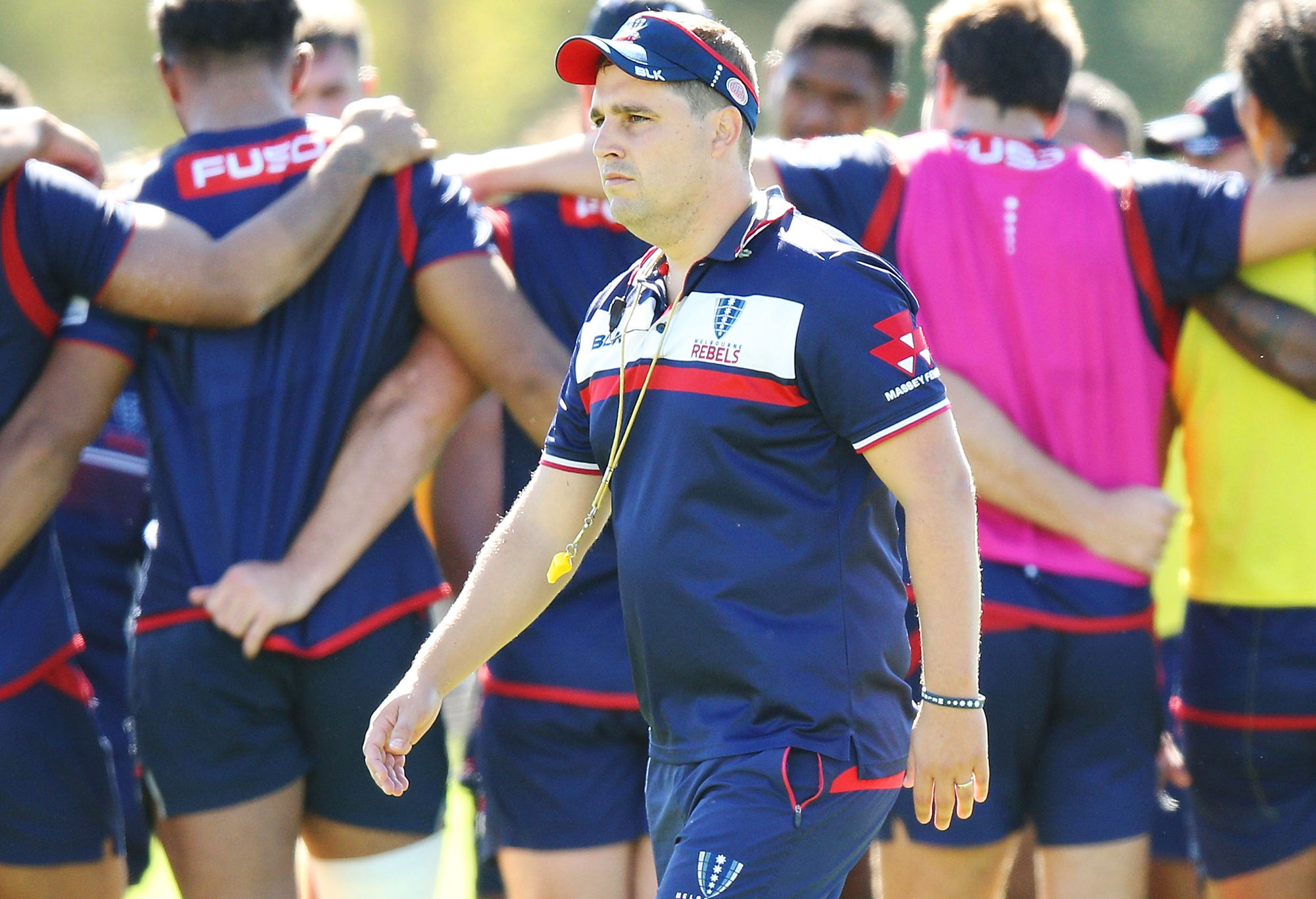
(Photo by Michael Dodge/Getty Images)
The opening game of the round revealed the rationale for the Highlanders’ hi-viz shirts. With Good Friday a public holiday the tradies were all on double time and a half – at least providing them some financial recompense for the disappointment of their 27-22 loss to the Chiefs.
The Chiefs were full of their usual enterprise but lacked a clinical edge, right up until Solomon Alaimalo finished off a classy ‘alley-oop’ move in the 40th minute. There were some hair-raising moments late as they withstood a typically tenacious Highlander fightback, but there were enough cool heads around like Charlie Ngatai to get the job done.
With Tawera Kerr-Barlow now in France, there’s a lot to like about how Te Teroi Tahuriorangi is developing this year. An Aaron Smith type, tongue-tied commentators around the world will be hoping he isn’t earmarked for higher honours in the future.
A bizarre game eventuated in Auckland, the Blues playing 70 minutes of the most insipid, soul-destroying rugby imaginable. The other ten minutes were sparkling, but that ratio somehow needs to be reversed if they are to win back the respect of their fans.
Young fly-half Stephen Perofeta is a talented footballer, but it is unfair and unwise to ask him to lead a side around the park that is so deficient in leadership and cohesion. How coach Tana Umaga could suggest post-match that he was happy with his teams’ effort, after shipping 60 points at home, was eyebrow-raising.
Blues fans might fairly question how many points would it take before the effort might be considered below par? 70 or 80? I’m tipping that most watchers knew as soon as the Sharks jumped to a 26-7 lead, that things were far from right, and that team 58, Krasny Yar, would fancy their chances right now.
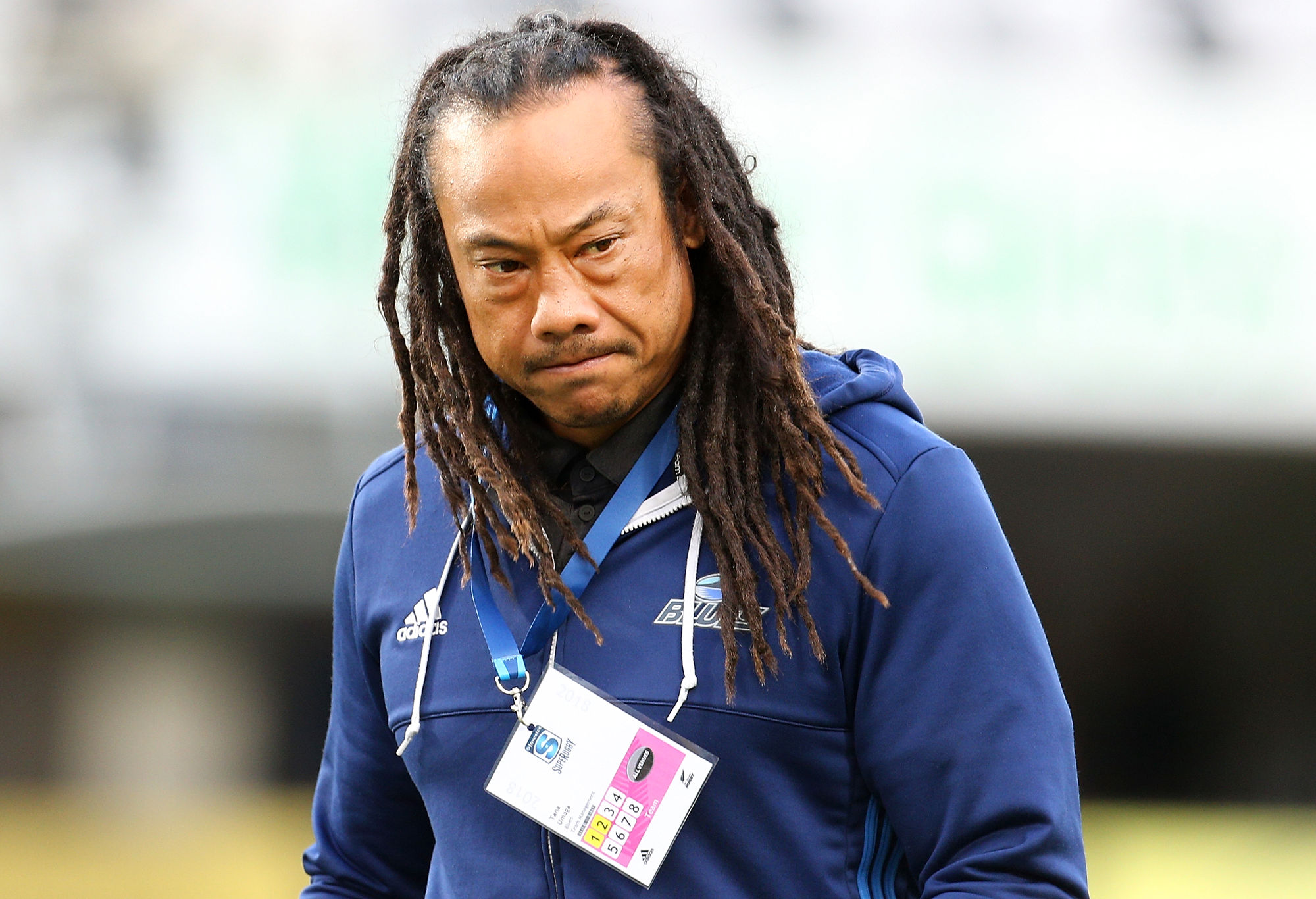
(Photo by Dianne Manson/Getty Images)
The Sharks were rewarded for finally finding a way to bring Curwin Bosch into the play, and to honour the energy of Jean Luc Du Preez with a confidence building team effort. Brother Robert had a heck of a night out too, kicking 13 from 13 for 38 points, the second highest individual score in a Super Rugby match.
The Hume derby went to the Waratahs, 24-17, in what was a typically dour affair – the email that came through from the Waratahs media unit late on Saturday night titled, “NSW Waratahs claim thriller in nation’s capital” perhaps slightly over-egging things.
The Waratahs struggled to retain possession and build pressure for most of the first half, but a try after the halftime siren to Taqele Naiyarovo, with the assist going to Henry Speight who kindly showed him both the sideline and the tryline, proved to be the crucial score of the match.
Not for the first time this season, the Waratahs grew stronger the further the match progressed, Harry Johnson-Holmes again impressing in the second-unit scrum.
For someone who has been out of Australian rugby for an age, David Pocock made a pretty fair impression of a rugby player. But the Brumbies were guilty of playing too much rugby at the wrong end, and then kicking away possession after hard won field position had been gained.
Most concerning for them however is their lack of scoring power. Their play is too narrow, relying too much on one-off running. And their much vaunted, ‘go to’ lineout maul is seemingly now a distant memory.
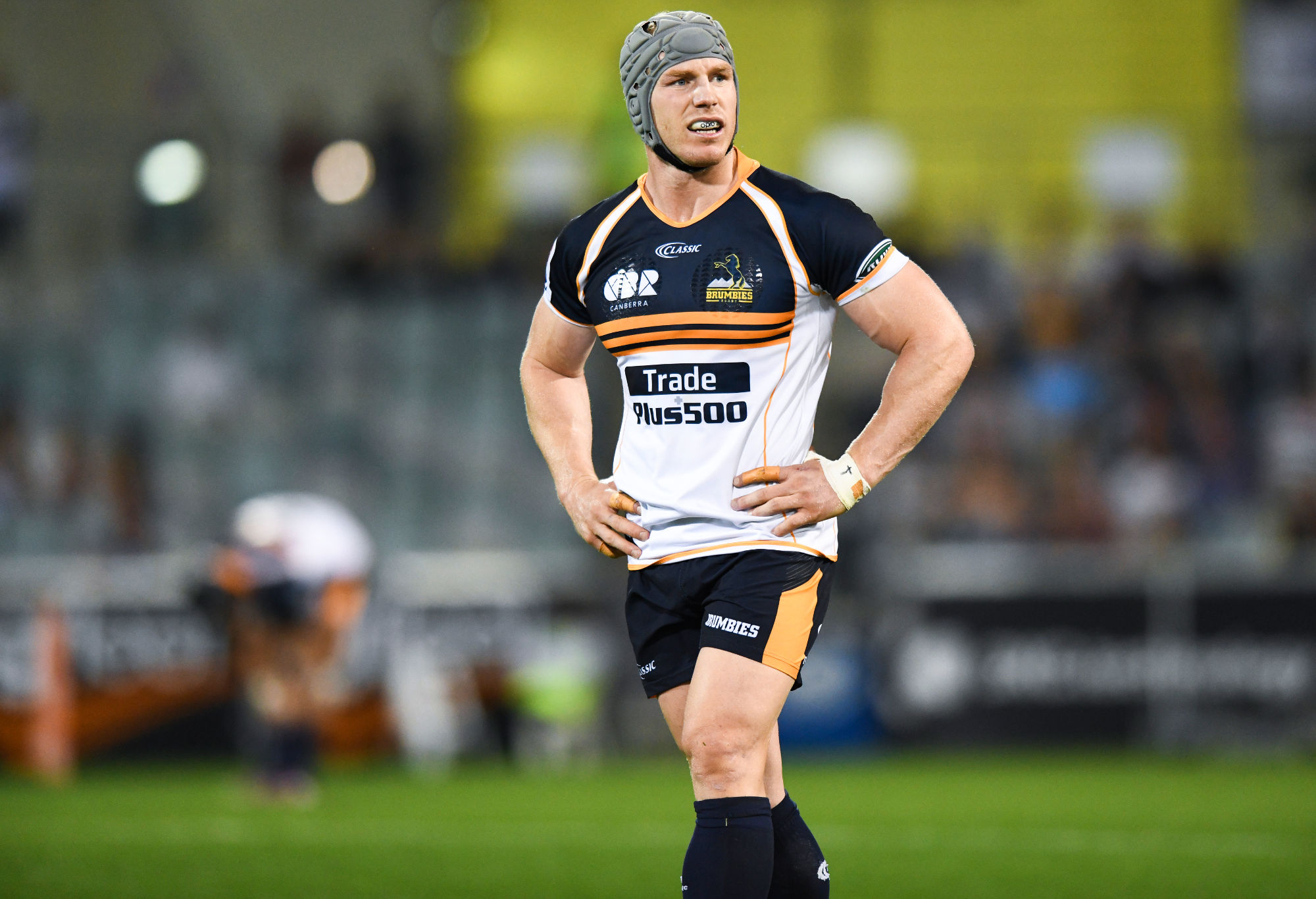
(AAP Image/Rohan Thomson)
Back at home, the Bulls got their lineout maul working against the Stormers, experienced hooker Adriaan Strauss helping himself to two tries then adding a third when a Stormers’ defensive lineout went haywire.
The 33-22 loss will frustrate Stormers fans who are looking for more consistent performance from their team, while the Bulls reinforced that this year, the impost of long distance travel on sides returning home, is less of a handicap than it has been in past seasons.
The replay of last year’s final was a frantic affair in the first half, although a steady string of handling errors from both sides kept a lid on the score. A little more patience and the introduction of Manasa Mataele made the difference for the Crusaders, who dominated field position and, despite shutting up shop a few minutes too early, fully deserved their 14-8 win.
With South Africa leading the rugby world in the ability of local TV producers to influence match officials, it should have come as no surprise that the Crusaders were denied a try to George Bridge in the first half after referee Jaco Peyper ruled an on-field try, while feeling it prudent to check the final pass from Mitchell Hunt.
The law dealing with the movement of the passer’s hands relative to his forward momentum has been clarified repeatedly in recent times, yet Peyper was ‘conveniently’ provided with only a ground level view that showed the ball travelling forward relative to ground markings, and no standard side-on view of Hunt releasing the ball, which would have supported his original decision.
The selective replay was enough for Peyper to change his decision and the Crusaders to wonder how, in 2018, they could still be subject to a home town decision manipulated by someone outside of the game.
As it turned out, there was no damage done this time, but this remains a messy and unsatisfactory area of the game that administrators need to take control of.





























































































